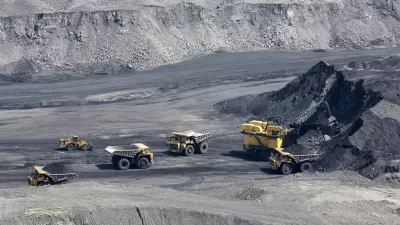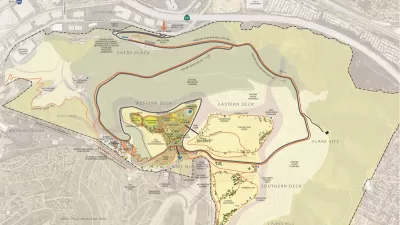The practice of self-bonding, or allowing coal companies a "pass" on setting aside funding for mine clean up, is coming back to haunt some states as the coal industry struggles.
"Colorado regulators say the state is changing its approach to ensuring coal mines get cleaned up," reports Leigh Paterson.
According to the article, the Colorado Department of Natural Resources is considering steps to "move away from self-bonding"—a policy by which coal companies are not required to set aside money for cleaning up mines in the future "if they can pass a test of financial strength."
"Even though many coal companies are struggling in a steep market downturn and some have even declared bankruptcy," explains Paterson, "many of them are still self-bonded. The problem? It's no longer clear whether those companies will actually be able to pay for future coal mine reclamation." Paterson cites the communications director at the Colorado Department of Natural Resources, Todd Hartman, in stating that the state is moving away from self-bonding, but additional details are still lacking.
As the coal industry struggles, the state of Colorado already has $100 million in future clean up costs sunk into self-bonds. That total accounts for 58 percent of the state's reclamation liability.
FULL STORY: CO 'Moves Away' From Self-Bonding

Planetizen Federal Action Tracker
A weekly monitor of how Trump’s orders and actions are impacting planners and planning in America.

San Francisco's School District Spent $105M To Build Affordable Housing for Teachers — And That's Just the Beginning
SFUSD joins a growing list of school districts using their land holdings to address housing affordability challenges faced by their own employees.

The Tiny, Adorable $7,000 Car Turning Japan Onto EVs
The single seat Mibot charges from a regular plug as quickly as an iPad, and is about half the price of an average EV.

Seattle's Plan for Adopting Driverless Cars
Equity, safety, accessibility and affordability are front of mind as the city prepares for robotaxis and other autonomous vehicles.

As Trump Phases Out FEMA, Is It Time to Flee the Floodplains?
With less federal funding available for disaster relief efforts, the need to relocate at-risk communities is more urgent than ever.

With Protected Lanes, 460% More People Commute by Bike
For those needing more ammo, more data proving what we already knew is here.
Urban Design for Planners 1: Software Tools
This six-course series explores essential urban design concepts using open source software and equips planners with the tools they need to participate fully in the urban design process.
Planning for Universal Design
Learn the tools for implementing Universal Design in planning regulations.
Smith Gee Studio
City of Charlotte
City of Camden Redevelopment Agency
City of Astoria
Transportation Research & Education Center (TREC) at Portland State University
US High Speed Rail Association
City of Camden Redevelopment Agency
Municipality of Princeton (NJ)





























